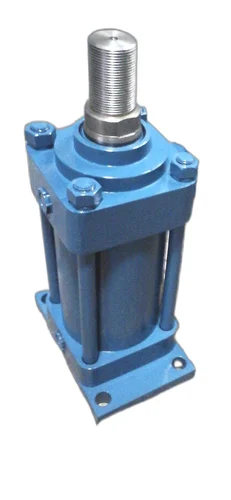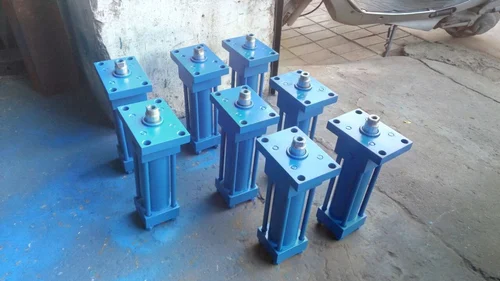Square Hydraulic Cylinder
₹5,700.0
| Mounting Style | Front Flange |
| Material | MS |
| Structure Type | Square |
| Color | Blue |
| Rod Diameter | 25/36 |
| Max. Stroke | As Applicable |
| Max Pressure | 150 Bar |
| Surface Treatment | Color Coated |
| Packing Type | Box |
| Power Source | Hydraulic |
This type cylinder can be use in die & mould application, this type cylinder construction square tiebar type.
You must be logged in to post a review.
Q & A
Hydraulics can be a sustainable technology when implemented and used in an environmentally conscious manner. Here are some considerations regarding the sustainability of hydraulics:
Energy Efficiency: Hydraulics can be highly efficient in converting mechanical energy into fluid power, making it an effective method for transmitting and controlling power in various applications. However, the overall sustainability of hydraulics depends on the energy source used to generate the mechanical energy, such as electricity or fossil fuels. The use of renewable energy sources, like solar or wind power, can enhance the sustainability of hydraulic systems.
Fluid Selection: The choice of hydraulic fluid is crucial for sustainability. Traditional hydraulic fluids based on mineral oils can have negative environmental impacts if they leak or are improperly disposed of. However, there are now more environmentally friendly alternatives available, such as biodegradable and non-toxic hydraulic fluids based on vegetable oils or synthetic compounds. Using these eco-friendly fluids reduces the potential for soil or water contamination.
Leakage Prevention: Minimizing fluid leakage is essential for sustainability. Leaks not only waste hydraulic fluid but can also lead to environmental pollution. Implementing proper maintenance practices, including regular inspections and seal replacements, can help prevent leaks and improve the overall sustainability of hydraulic systems.
Lifecycle Considerations: Considering the entire lifecycle of hydraulic systems is important for sustainability. This includes the manufacturing, usage, and end-of-life phases. Sustainable manufacturing practices, efficient designs, and responsible disposal or recycling of hydraulic components are all factors that contribute to the overall sustainability of hydraulic systems.
Application Efficiency: The efficient design and application of hydraulic systems play a significant role in their sustainability. Proper system sizing, optimized component selection, and effective control strategies can improve energy efficiency and minimize waste. It is essential to design hydraulic systems with the specific application requirements in mind to ensure sustainable and effective performance.
Environmental Impact: Hydraulic systems may have certain environmental impacts, particularly in heavy industries or large-scale applications. For example, hydraulic systems in mining or construction can require substantial energy and resources. Minimizing the overall environmental footprint of hydraulic systems involves optimizing their use, considering alternative technologies where appropriate, and implementing effective environmental management practices.
In summary, hydraulics can be sustainable when factors such as energy efficiency, responsible fluid selection, leakage prevention, lifecycle considerations, application efficiency, and environmental impact are taken into account. By implementing best practices and considering the environmental implications throughout the lifecycle of hydraulic systems, their sustainability can be maximized.
General Inquiries
There are no inquiries yet.



















Reviews
There are no reviews yet.